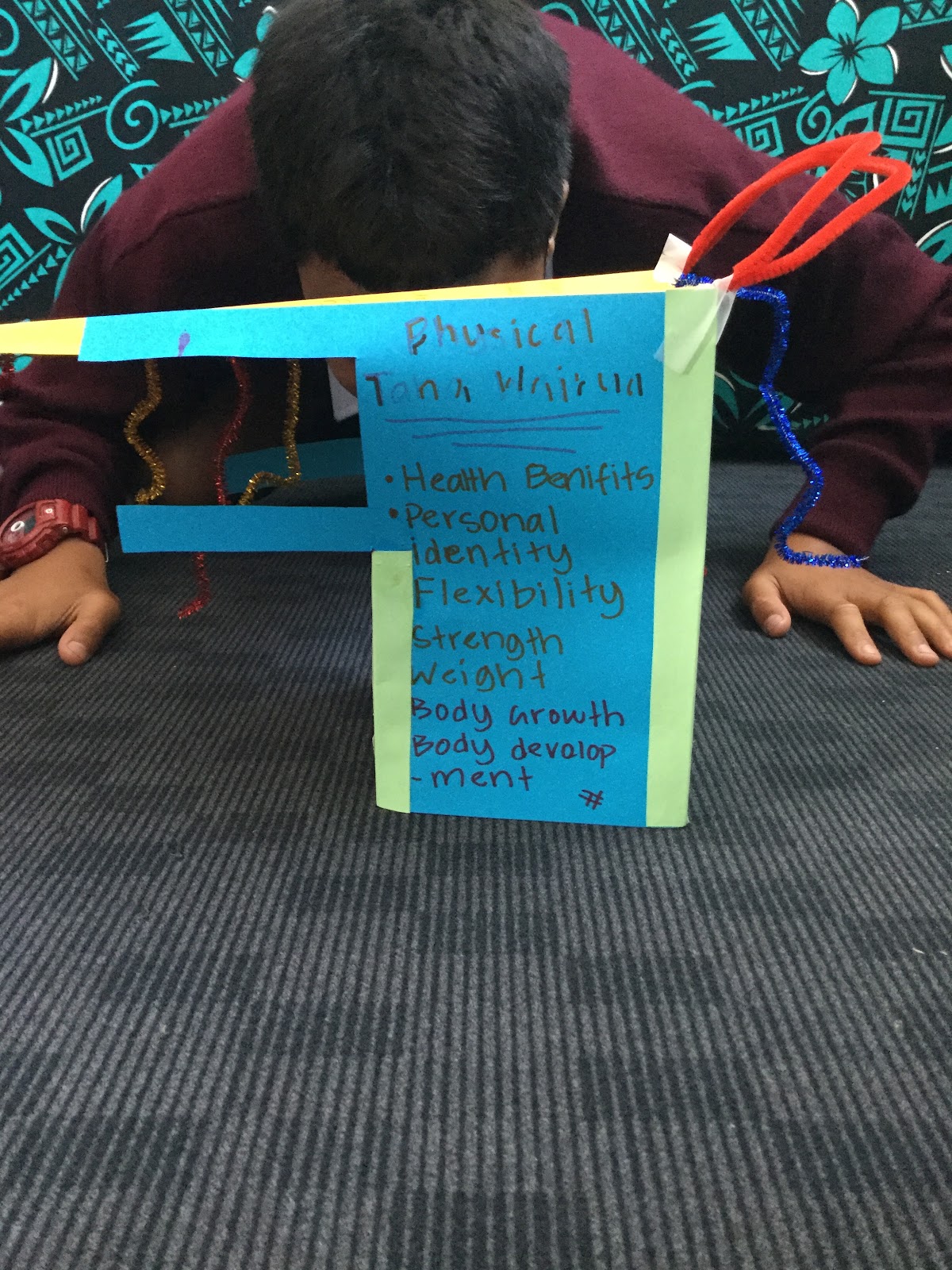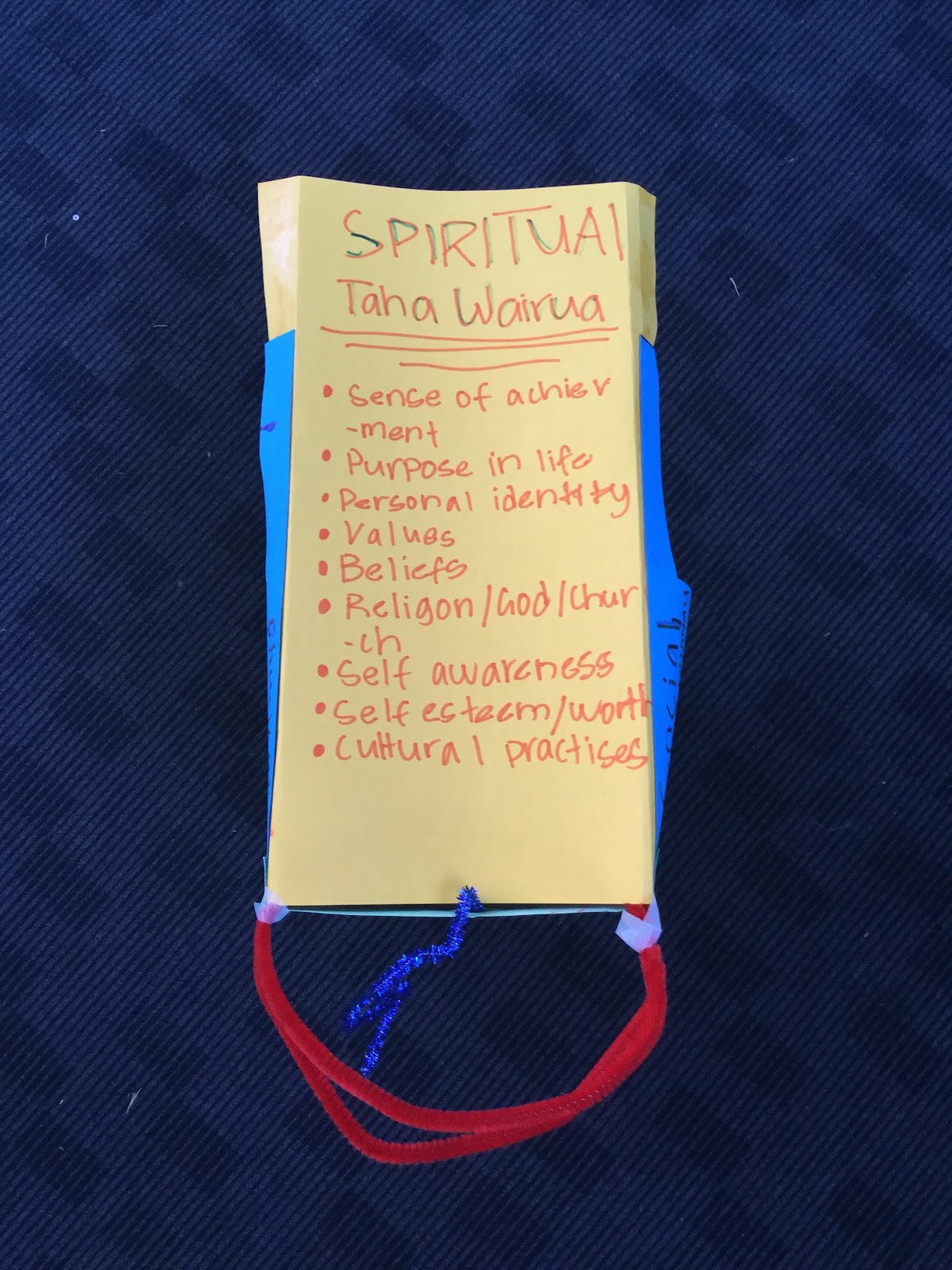

Here are the four dimensions: spiritual - taha wairua, physical - taha tinana, social - taha whanau and mental/emotional - taha hinengaro. You’re probably wondering “what the heck are the 4 dimensions?” or “what’s the meaning of these words?”
We’ll begin with physical well-being (taha tinana). Your physical well-being is what you act in real life, things you physically do using your arms, legs, eyes, etc. There are millions of things that can affect your physical well-being positively: going to the gym, brushing your teeth or drinking a nutrition milkshake every morning. There are also negatives about your physical well-being like dislocating an arm, getting a cramp in your leg or getting a disease. That’s your physical well-being.
Everyone has spiritual well-being (taha wairua), whether you think you do or not. It could be your sense of achievement or your purpose in life. Your spiritual well-being could be a huge part of your life, I go church and worship God, you might worship something/someone else, it doesn’t have to be religious. Some people believe that Minecraft is better than Fortnite, that could also be your spiritual well-being or your belief.
Next is your social well-being (taha whanau). Being actively social could make a big impact on all the other dimensions. Communicating and listening to others is key to improve this well-being, you learn the goods and bads in life. There are many positive and negative things that could affect your social life/well-being: relationships, family, friends, compassion, caring, relating with others, sense of belonging, etc. These could also cause some of your other dimensions to fall; you get in arguments with the closest ones to you, it weakens your mental/emotional well-being and possibly your spiritual well-being too.
The fourth and last dimension is your mental/emotional well-being (taha hinengaro). This is a strong wall that plays a huge part in your Hauora. These are your feelings, thoughts, and emotions. If your state for mental/emotional isn’t as good, then your other well-beings will be heavily affected negatively. Being excited, joyful or happy are part of your positive mental/emotional well-being; being tired, stressed or sad are your negatives, this is what leads people to depression and further issues in life.
These dimensions are critical for your health and well-being, it’s basically what makes up your whole life. But at some point in your life, you’ll crash, you’ll struggle, it will be irresistible to change what happened, but you can’t; but what you can change is your response. Respond strong, respond with happiness, will, and strength. Don’t sit there doing nothing, make a change in your life!



